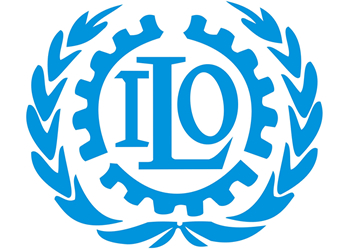 |
| International Labour Organisation (ILO) |
Many families which have managed to rise above the poverty line are at risk of lapsing back.
According to the report that was made available to the Guardian yesterday, by contrast, income inequalities have increased in advanced economies over the past two years, against the backdrop of increasing global unemployment – predicted to rise from the current 200 million to nearly 208 million by 2015.
The world work report 2013 states “repairing the economic and social fabric”, income inequalities rose between 2010 and 2011 in 14 of the 26 advanced economies surveyed, including France, Denmark, Spain and the US.
Inequality levels in seven of the remaining 12 countries were still higher than before the start of the crisis.
It states that although the economy was encouraging, but there were still-fragile signs of improvement in emerging and developing economies, while many advanced economies continue to face high or even rising unemployment and increasing inequalities.
As the global economy continues a slow recovery from the financial crisis, most emerging and developing countries are experiencing rising employment and narrowing income inequalities compared to their high-income counterparts.
Economic inequalities are also on the rise, as small firms lag behind their larger counterparts in terms of profits and productive investment.
While most large enterprises have regained access to capital markets, start-ups and small enterprises are disproportionately affected by bank credit conditions. This is a problem for job recovery now and affects economic prospects over the longer term.
“These figures present a positive development in many parts of the developing world, but paint a disturbing picture in many high income countries, despite the economic recovery.
The situation in some European countries in particular is beginning to strain their economic and social fabric. We need a global recovery focussed on jobs and productive investment, combined with better social protection for the poorest and most vulnerable groups.
And we need to pay serious attention to closing the inequality gap that is widening in so many parts of the world,” said ILO Director-General, Guy Ryder.
The report shows that middle-income groups in many advanced economies are shrinking, fuelled in part, by long-term unemployment, weakening job quality and workers dropping out of the labour market altogether.
By contrast, the report provides evidence that pay of chief executive officers in many of those countries has once again soared, following a short pause in the immediate aftermath of the global crisis.
“The shrinking size of middle-income groups in advanced economies is a matter of concern, not only for the inclusiveness of those societies but also for economic reasons.
Long-term investment decisions by enterprises also depend on the proximity of large and stable middle-income groups which are in a position to consume,” said Raymond Torres, Director of the International Institute for Labour Studies, the research arm of the ILO.
In Spain, the size of middle-income group declined from 50 per cent in 2007, to 46 per cent by the end of 2010. In the United States, the richest seven per cent of the population saw their average net worth increase during the first two years of the recovery from 56 per cent in 2009 to 63 per cent in 2011. The remaining 93 per cent of Americans saw their net worth decline.
“More and better jobs are needed so there can be a more balanced distribution of income in both advanced and developing economies,” Torres stressed.
The size of the middle-income group in developing and emerging economies has increased from 263 million in 1999 to 694 million in 2010.
This is a major achievement of a growing number of Latin American and Asian countries, which spread more recently to some countries in Africa and the Arab region.
No comments:
Post a Comment